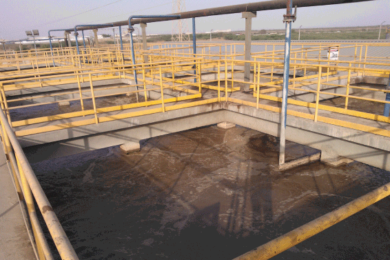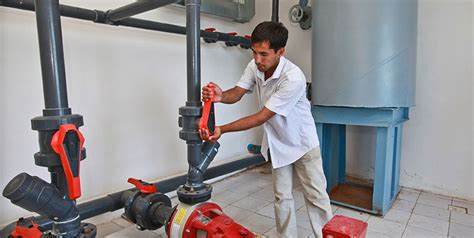
Public-Private Partnerships: Advancing Wastewater Treatment for a Sustainable Future
Introduction
Public-Private Partnerships (PPP) play a crucial role in advancing wastewater treatment, ensuring the effective management of this essential resource. This article explores the concept of PPP in the context of wastewater treatment, highlighting its relevance and importance. By examining the historical background, key concepts, advantages, challenges, case studies, current trends, controversies, and future outlook, we aim to shed light on the potential of PPP in addressing wastewater treatment challenges.
Historical Background
Wastewater treatment practices have evolved significantly over time. Initially, basic methods of wastewater disposal were employed, leading to detrimental environmental impacts. With the realization of the need for sustainable solutions, wastewater treatment plants were established. However, these facilities often faced financial constraints and inadequate infrastructure. This prompted the exploration of PPP as a means to effectively address these challenges.
Key Concepts and Definitions
Public-Private Partnerships, in the context of wastewater treatment, refer to collaborations between public entities, such as governments or municipalities, and private sector organizations. These partnerships leverage the strengths of both sectors to finance, construct, operate, and maintain wastewater treatment facilities. Key terms such as wastewater treatment, infrastructure, financing, and governance are integral to understanding the significance of PPP.

Advantages of Public-Private Partnerships in Advancing Wastewater Treatment
Increased Efficiency and Cost-effectiveness: PPP allows for streamlined operations and enhanced resource allocation, leading to improved efficiency and cost-effectiveness in wastewater treatment. Private sector expertise facilitates the adoption of innovative technologies and management practices, optimizing the overall performance of treatment facilities.
Access to Private Sector Expertise and Innovation: Collaborating with private entities provides access to specialized knowledge, cutting-edge technologies, and innovative approaches. This enables the implementation of state-of-the-art wastewater treatment methods, resulting in improved treatment efficiency and environmental outcomes.
Shared Risk and Responsibility: PPP distributes the risks and responsibilities associated with wastewater treatment between public and private entities. This shared accountability ensures a more sustainable and resilient approach to managing wastewater, as both sectors work together to address challenges and mitigate potential failures.
Challenges and Considerations in Implementing Public-Private Partnerships for Wastewater Treatment
Regulatory and Legal Frameworks: Establishing clear and comprehensive regulatory frameworks is essential to govern PPP projects effectively. Balancing the interests of all stakeholders while ensuring compliance with environmental and public health regulations requires careful consideration and transparent governance.
Balancing Public Interest and Private Profit Motives: Managing the tension between the public interest in providing affordable and accessible wastewater treatment services and the private sector’s profit motives can be challenging. Effective negotiation and clear contractual arrangements are crucial to strike a balance that serves the greater good.
Long-term Sustainability and Maintenance of Infrastructure: Ensuring the long-term sustainability and maintenance of wastewater treatment infrastructure is a critical consideration in PPP projects. Adequate financial mechanisms and performance-based contracts must be in place to guarantee the continued operation and maintenance of facilities.

Case Studies or Examples
Several successful PPP projects in wastewater treatment have demonstrated the effectiveness of this approach. For instance, the Thames Water Utilities Limited in the United Kingdom entered into a PPP agreement with private entities to upgrade and operate wastewater treatment plants. This collaboration resulted in significant improvements in treatment efficiency and environmental compliance. Other examples include the Manila Water Company in the Philippines and the Suez Environment Company in France, both of which have implemented successful PPP projects in wastewater treatment.
Current Trends or Developments
Recent trends in PPP for wastewater treatment focus on maximizing resource recovery, adopting circular economy principles, and embracing digital technologies. Advanced treatment processes, such as membrane bioreactors and anaerobic digestion, have gained prominence, allowing for the production of biogas and nutrient-rich fertilizers. Additionally, the integration of smart sensors and automation technologies enables real-time monitoring and predictive maintenance, optimizing wastewater treatment operations.
Challenges or Controversies
PPP in wastewater treatment is not without challenges and controversies. Critics argue that privatization may result in increased costs for consumers and a lack of transparency in decision-making processes. Additionally, concerns over the accountability and potential exploitation of public resources have fueled debates. It is crucial to address these concerns and ensure robust governance mechanisms to mitigate potential controversies.

Future Outlook
The future of PPP in advancing wastewater treatment holds immense potential. As countries strive to achieve sustainable development goals, PPP can bridge the financing gap and accelerate the implementation of innovative wastewater treatment technologies. Collaboration between public and private entities will be essential to ensure the efficient use of resources and the long-term sustainability of wastewater treatment facilities.
References
Smith, J., & Johnson, R. (Eds.). (2019). Public-Private Partnerships in Wastewater Treatment: The Emerging Role of Innovation and Expertise. Springer.
World Bank. (2017). Public-Private Partnerships for Sustainable Development. Retrieved from www.worldbank.org/en/topic/publicprivatepartnerships




